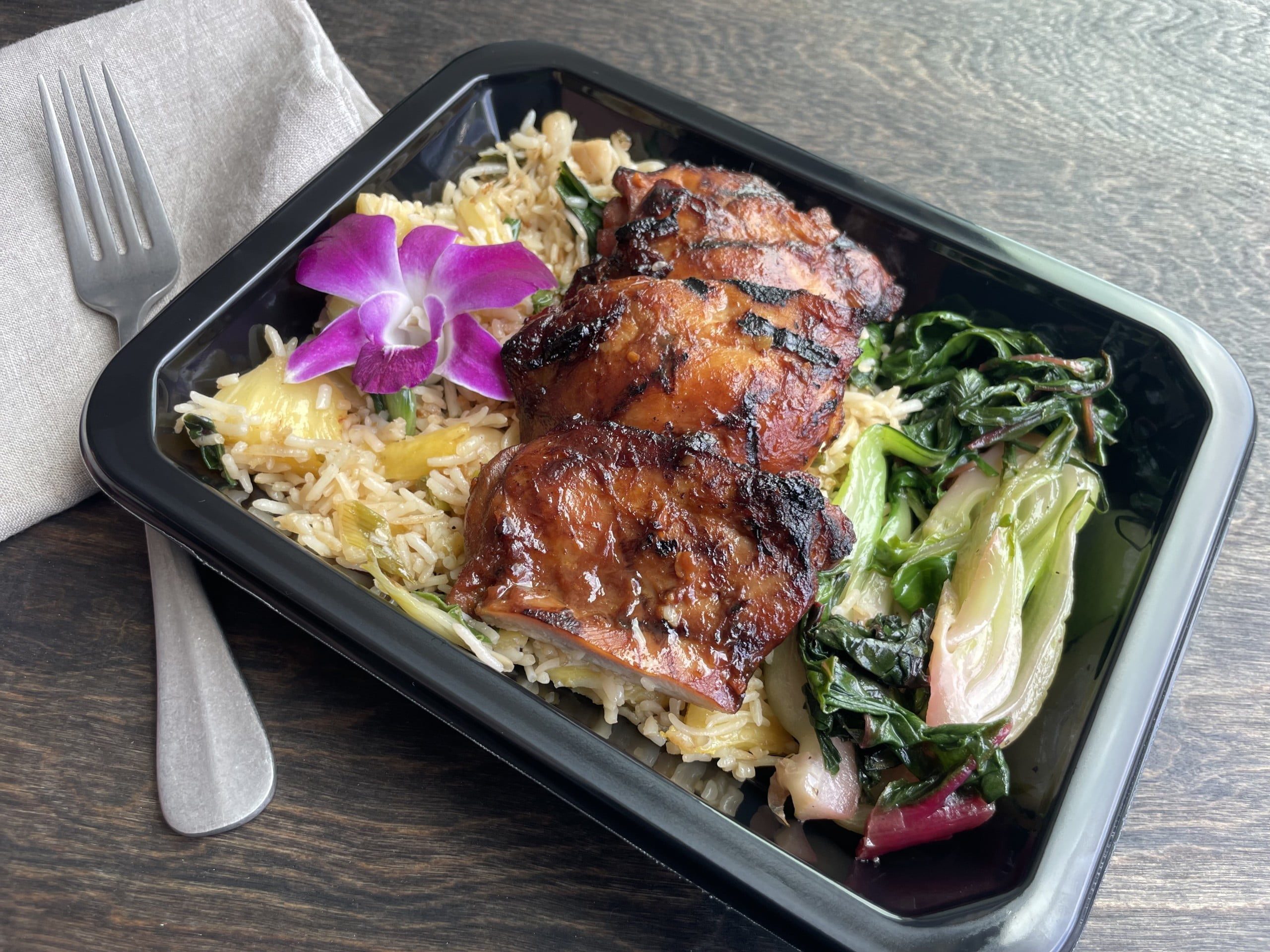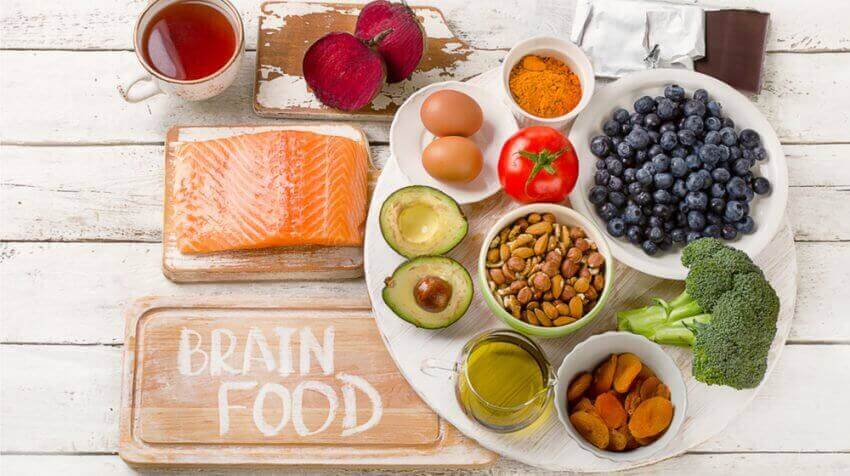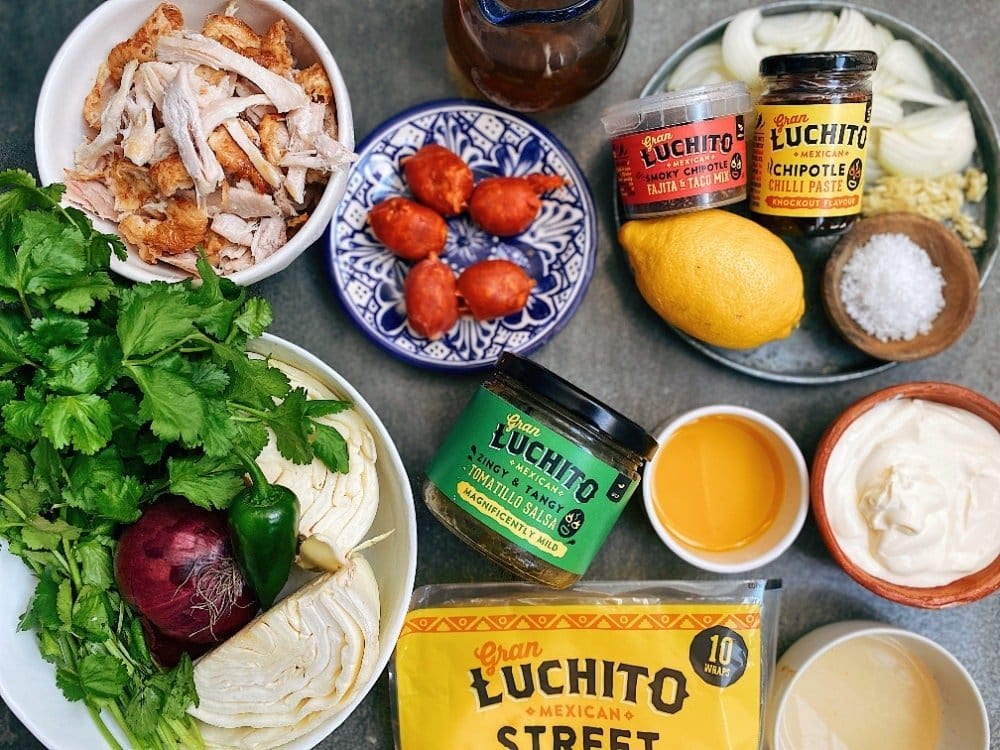
Take your tastebuds on a Hawaiian Vacation
Summer just got here, and this heat already has us dreaming of a sweet island getaway. That’s why this month we turned to the beautiful
Cart
No products in the cart.
Our Website is under maintenance if you run into any issues, please call us (832)-942-4012

Planning meals, feeding the family and thinking about food in general have become central to our daily routine during the Covid-19 lockdown. We are trying to follow the #stayathome mantra but in the process of doing so are finding ourselves in a predicament: We are almost always within close proximity of the kitchen and stress eating is becoming a temptation.
While in quarantine, we are serving more meals, feeding more mouths and stockpiling emergency supplies of fresh ingredients. We are also using food to fight boredom, stress and uncertainty with varying degrees of success. The question is, how can we turn the tables on stress eating and use nutrition to help lift our mood? What does it mean to eat “smarter” during Covid-19?
Finding comfort in food is common and sometimes referred to as ‘emotional eating’ or ‘stress eating’. Negative emotions may lead to a feeling of emptiness where we try to fill that void and create a temporary sense of fullness and distraction with food. We are vulnerable because we are socially distanced from our usual support system of friends and extended family. Worse still, we are unable to engage in outdoor physical activities that might otherwise relieve tension and sadness.
Serotonin is a neurotransmitter that helps regulate sleep and appetite, mediate moods, and inhibit pain. When we consider the connection between the brain and the gut, it’s important to know that 90% of serotonin receptors are located in the gut. In the relatively new field of nutritional psychiatry practitioners help patients understand how gut health and diet can positively or negatively affect their mood. Researchers believe that good bacteria not only influence what your gut digests and absorbs, but also affect the degree of inflammation throughout your body, as well as your mood and energy level.
Studies have compared “traditional” diets, like the Mediterranean diet and the traditional Japanese diet, to a typical “Western” diet. Findings have shown that the risk of depression is 25% to 35% lower in those who eat a traditional diet. A recent study suggests that eating a healthy, balanced diet such as the Mediterranean diet and avoiding inflammation-producing foods may protect against depression.

Scientists account for these findings because Mediterranean and Japanese diets are rich in vegetables, fruits, unprocessed grains, fish and seafood. They also contain modest amounts of lean meats and dairy.
Mediterranean and Japanese diets are devoid of processed and refined foods and sugars, which are staples in the West. Furthermore, many of these unprocessed foods are fermented, and therefore act as natural probiotics.
A good diet can help, but it’s only one part of treatment. It’s important to note that just like you cannot exercise out of a bad diet, you also cannot eat your way out of feeling depressed or anxious. We should be careful about using food as the only treatment for mood. When we talk about mood problems, we are referring to mild and moderate forms of depression and anxiety. In other words, food is not going to impact serious forms of depression and thoughts of suicide. It is important to seek treatment in an emergency room or contact your doctor if you are experiencing thoughts about harming yourself.
The effect of our eating habits on our mental health isn’t just about what we eat. How we source our food, the care we put into preparing it and the way we eat it are as important as our food choices when it comes to our state of mind. Here are some suggested guidelines for “eating smarter” and avoiding stress eating during the lockdown.
Try to improve the variety and quality of food you consume and choose meals or snacks that are nutrient-dense, clean and lean:

Certain foods have been shown to improve overall brain health and certain types of mood disorders.

A 2013 study found that the risk of depression is 25 to 35 percent lower in those who eat a diet high in vegetables, fruits, grains and fish while avoiding processed foods and sugar. Nutrients such as omega-3 fatty acids (found in salmon, walnuts and chia seeds), vitamins D (eggs) and B (spinach, mushrooms and pineapple), folic acid (whole-wheat bread, green vegetables and nuts), magnesium (seaweed, beans and leafy greens) and tryptophan (turkey, eggs and beets), among others, have a measurable impact on depression and other mental health conditions
Another study outlines an Antidepressant Food Scale, which lists 12 antidepressant nutrients related to the prevention and treatment of depression. Some of the foods containing these nutrients are oysters, mussels, salmon, watercress, spinach, romaine lettuce, cauliflower, and strawberries.
What we eat, especially foods that contain chemical additives and ultra-processed foods, affects our gut environment and increases our risk of diseases. Ultra-processed foods contain substances extracted from food (such as sugar and starch), added from food constituents (hydrogenated fats), or made in a laboratory (flavor enhancers, food colorings).
It’s important to know that manufactures make ultra-processed foods such as fast foods extra tasty by using such ingredients or additives. They are also cost effective to the consumer. These foods are very common in the typical Western diet and some of them give us an instant sugar rush that lures us into the stress eating mindset. Some examples of processed foods are canned foods, sugar-coated dried fruits, and salted meat products. Some examples of ultra-processed foods are soda and sugary or savory packaged snack foods such as breads and pastries. Fish or chicken nuggets, and instant noodle soups are other examples.
Researchers recommend “fixing the food first” (in other words, what we eat) before trying gut modifying-therapies (probiotics, prebiotics) to improve how we feel. They suggest eating whole foods and avoiding processed and ultra-processed foods that we know cause inflammation and disease.
Along with growing, cooking, serving and carefully choosing our food, enjoying it is also key to mental health. Taking time to savor our food enhances well-being, through the mechanisms of presence, gratitude and mindfulness. Research confirms that meditation (essentially a structured form of mindfulness) can be as powerful as antidepressants for relieving symptoms of anxiety and depression. The positive emotions of gratitude and appreciation can also potentially increase happiness levels.
There are plenty of ways to work mindfulness into your daily eating habits. Start by slowing down and really looking at what’s on your plate. Avoid distractions, such as TV, newspapers, books or anxiety-producing conversations. Eating in a calm environment will allow you to focus more attention on what’s going in your body. Eat what your body wants and just enough to feel satisfied, but don’t stuff yourself. “Mindful eating doesn’t mean you can’t indulge,” Zeitlin says. “It just means that you are consciously making the choice to enjoy a piece of dark chocolate versus mindlessly eating a bag of chips when you’re bored.”
Recording what goes into your body can stop emotional stress eating before it starts, says Brigitte Zeitlin, a registered dietitian and founder of New York-based BZ Nutrition. Write down what you’re eating, where you’re eating and what time of day you’re eating. “This will help you narrow down where in your day your eating falls off track,” she says. Once you’ve identified your trigger times, you can find ways to distract yourself from stress eating. Koenig suggests physical activity – moving your body releases emotional tension and can help you avoid snacking.
Healthy Gourmet help you get through your Covid blues by sending you nutritious meals that are consistent with clean eating and are minimally processed. Check out our website for details and sign up for our Newsletter. We won’t disappoint you.

Sources
https://health.clevelandclinic.org/how-stress-can-make-you-eat-more-or-not-at-all/
https://www.psychiatrictimes.com/depression/nutritional-psychiatry-gut-brain-connection
https://health.usnews.com/wellness/slideshows/how-to-stop-emotional-eating?slide=5
https://www.health.harvard.edu/blog/nutritional-psychiatry-your-brain-on-food

Summer just got here, and this heat already has us dreaming of a sweet island getaway. That’s why this month we turned to the beautiful

Check out how EatFlavorly utilizes Mexican meats and so many more in our scratch-made meals over at Our Menu! With Cinco de Mayo

National Earth day is approaching on Thursday April 22nd. Today, not only is Earth Day a day meant to increase awareness of environmental problems, but
The convenience of home meal delivery is undeniable. Getting food delivered to your door that does not require cooking or cleaning is a huge time-saver.